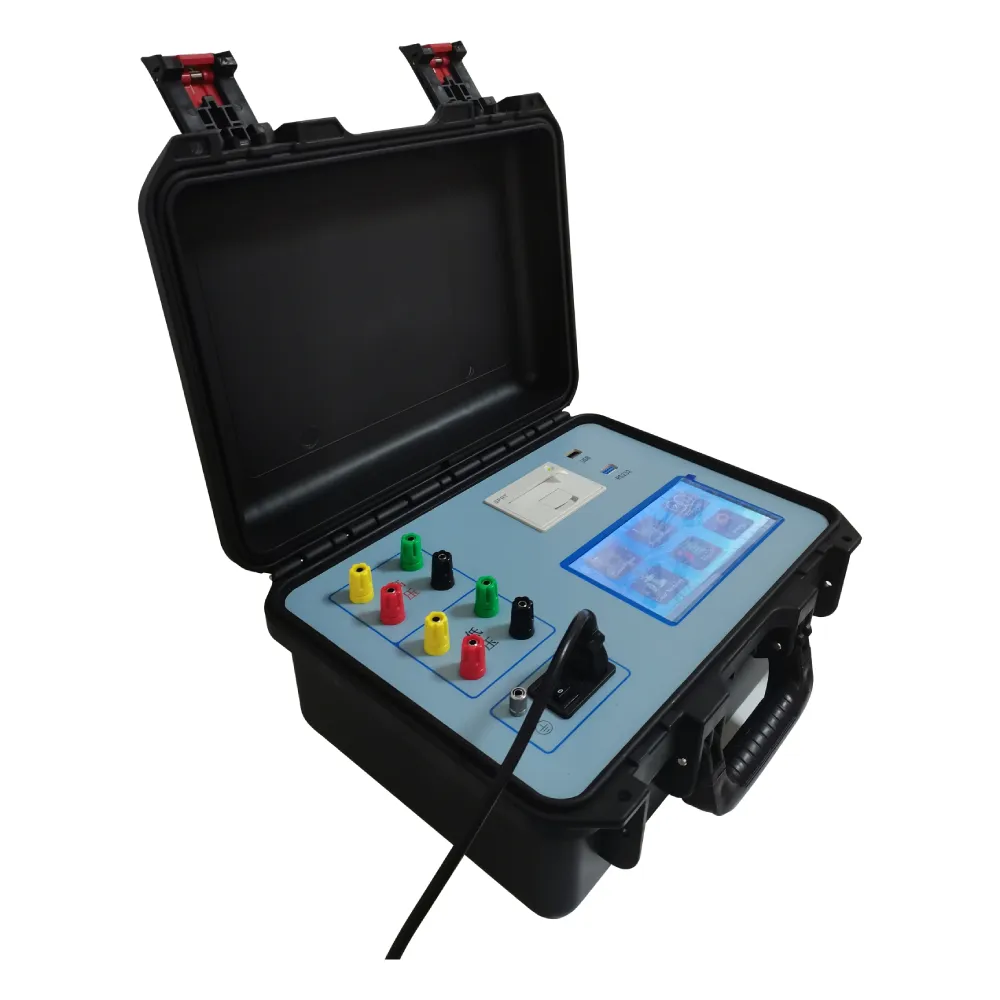TEL:
+86-0312-3189593
 English
English

Telephone:0312-3189593

Email:sales@oil-tester.com

-
 Afrikaans
Afrikaans -
 Albanian
Albanian -
 Amharic
Amharic -
 Arabic
Arabic -
 Armenian
Armenian -
 Azerbaijani
Azerbaijani -
 Basque
Basque -
 Belarusian
Belarusian -
 Bengali
Bengali -
 Bosnian
Bosnian -
 Bulgarian
Bulgarian -
 Catalan
Catalan -
 Cebuano
Cebuano -
 China
China -
 China (Taiwan)
China (Taiwan) -
 Corsican
Corsican -
 Croatian
Croatian -
 Czech
Czech -
 Danish
Danish -
 Dutch
Dutch -
 English
English -
 Esperanto
Esperanto -
 Estonian
Estonian -
 Finnish
Finnish -
 French
French -
 Frisian
Frisian -
 Galician
Galician -
 Georgian
Georgian -
 German
German -
 Greek
Greek -
 Gujarati
Gujarati -
 Haitian Creole
Haitian Creole -
 hausa
hausa -
 hawaiian
hawaiian -
 Hebrew
Hebrew -
 Hindi
Hindi -
 Miao
Miao -
 Hungarian
Hungarian -
 Icelandic
Icelandic -
 igbo
igbo -
 Indonesian
Indonesian -
 irish
irish -
 Italian
Italian -
 Japanese
Japanese -
 Javanese
Javanese -
 Kannada
Kannada -
 kazakh
kazakh -
 Khmer
Khmer -
 Rwandese
Rwandese -
 Korean
Korean -
 Kurdish
Kurdish -
 Kyrgyz
Kyrgyz -
 Lao
Lao -
 Latin
Latin -
 Latvian
Latvian -
 Lithuanian
Lithuanian -
 Luxembourgish
Luxembourgish -
 Macedonian
Macedonian -
 Malgashi
Malgashi -
 Malay
Malay -
 Malayalam
Malayalam -
 Maltese
Maltese -
 Maori
Maori -
 Marathi
Marathi -
 Mongolian
Mongolian -
 Myanmar
Myanmar -
 Nepali
Nepali -
 Norwegian
Norwegian -
 Norwegian
Norwegian -
 Occitan
Occitan -
 Pashto
Pashto -
 Persian
Persian -
 Polish
Polish -
 Portuguese
Portuguese -
 Punjabi
Punjabi -
 Romanian
Romanian -
 Russian
Russian -
 Samoan
Samoan -
 Scottish Gaelic
Scottish Gaelic -
 Serbian
Serbian -
 Sesotho
Sesotho -
 Shona
Shona -
 Sindhi
Sindhi -
 Sinhala
Sinhala -
 Slovak
Slovak -
 Slovenian
Slovenian -
 Somali
Somali -
 Spanish
Spanish -
 Sundanese
Sundanese -
 Swahili
Swahili -
 Swedish
Swedish -
 Tagalog
Tagalog -
 Tajik
Tajik -
 Tamil
Tamil -
 Tatar
Tatar -
 Telugu
Telugu -
 Thai
Thai -
 Turkish
Turkish -
 Turkmen
Turkmen -
 Ukrainian
Ukrainian -
 Urdu
Urdu -
 Uighur
Uighur -
 Uzbek
Uzbek -
 Vietnamese
Vietnamese -
 Welsh
Welsh -
 Bantu
Bantu -
 Yiddish
Yiddish -
 Yoruba
Yoruba -
 Zulu
Zulu
Ene . 28, 2025 04:38
Back to list
PS-9001 Gas Chromatograph
Chromatography, a cornerstone in analytical chemistry, finds indispensable utility across diverse industries, from pharmaceuticals to environmental testing. It operates on a simple yet powerful principle—separating mixtures to analyze their components. Here, we delve into the world of chromatographs, offering insights from both user experience and expert analysis to understand their pivotal role and emerging innovations.
Trustworthiness, however, extends beyond data accuracy. It encompasses maintaining the delicacy of the instrument. Regular maintenance and validation cycles are integral to a chromatograph's longevity and performance. Instrument manufacturers provide detailed manuals outlining maintenance protocols, and many companies invest in service contracts to ensure these precision instruments remain at peak operational health. Emerging trends in chromatograph technology are focused on increasing throughput and minimizing environmental impact. Many companies are now developing more eco-friendly solvents and promoting practices that reduce chemical waste. Additionally, advancements in automation and software integration are transforming chromatographs into intelligent systems capable of real-time data analysis and remote operation, accelerating decision-making in fast-paced environments. Moreover, with the advent of digital laboratories, chromatographs are increasingly becoming part of interconnected networks, allowing for big data analytics and enhanced predictive maintenance. This digital transformation is redefining how data is interpreted and utilized, marking a new era of efficiency and accuracy in laboratories across the globe. In essence, selecting the right chromatograph is a decision that hinges on understanding the specific analytical needs, adhering to expert-recommended practices, and instituting a robust maintenance routine. As industries continue to demand more rigorous and reliable data, chromatographs stand as essential tools in not only meeting these demands but also in propelling scientific discovery forward. Future advancements promise to make these instruments even more user-friendly, sustainable, and integrated into broader analytical ecosystems, ensuring their continued relevance and utility.


Trustworthiness, however, extends beyond data accuracy. It encompasses maintaining the delicacy of the instrument. Regular maintenance and validation cycles are integral to a chromatograph's longevity and performance. Instrument manufacturers provide detailed manuals outlining maintenance protocols, and many companies invest in service contracts to ensure these precision instruments remain at peak operational health. Emerging trends in chromatograph technology are focused on increasing throughput and minimizing environmental impact. Many companies are now developing more eco-friendly solvents and promoting practices that reduce chemical waste. Additionally, advancements in automation and software integration are transforming chromatographs into intelligent systems capable of real-time data analysis and remote operation, accelerating decision-making in fast-paced environments. Moreover, with the advent of digital laboratories, chromatographs are increasingly becoming part of interconnected networks, allowing for big data analytics and enhanced predictive maintenance. This digital transformation is redefining how data is interpreted and utilized, marking a new era of efficiency and accuracy in laboratories across the globe. In essence, selecting the right chromatograph is a decision that hinges on understanding the specific analytical needs, adhering to expert-recommended practices, and instituting a robust maintenance routine. As industries continue to demand more rigorous and reliable data, chromatographs stand as essential tools in not only meeting these demands but also in propelling scientific discovery forward. Future advancements promise to make these instruments even more user-friendly, sustainable, and integrated into broader analytical ecosystems, ensuring their continued relevance and utility.
Latest news
-
Testing Equipment Industry Sees Major Advancements in 2025: Smart & Precision Technologies Lead the WayNewsJun.06,2025
-
Applications of Direct Current Generators in Renewable Energy SystemsNewsJun.05,2025
-
Hipot Tester Calibration and Accuracy GuidelinesNewsJun.05,2025
-
Digital Circuit Breaker Analyzer Features and BenefitsNewsJun.05,2025
-
Benefits of Real-Time Power Quality Monitoring Devices for Industrial EfficiencyNewsJun.05,2025
-
Earth Fault Loop Testing in High-Rise Building Electrical SystemsNewsJun.05,2025



